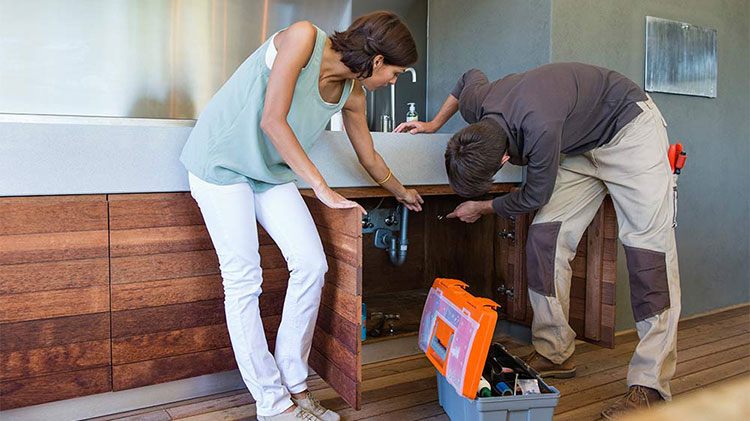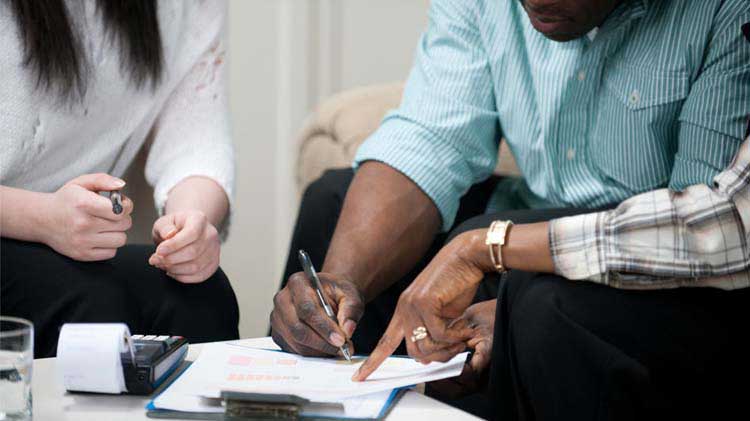Dealing with a difficult landlord
Review these tips for navigating your rights as a renter.
What can you do when your rental story doesn't end happily ever after? Some ways to deal with common issues and get help for the big ones are listed below.
Your apartment needs repairs
In almost every state, tenants are entitled by law to a safe and livable home. That typically means landlords are required to provide safe structural elements (like stairs and roofs), hot and cold water and operating electrical, plumbing, heating and air-conditioning systems, among other things.
"If you're in a situation that threatens your health or safety, contact a lawyer who can tell you about your rights in the state, county or city you're in," says Olivia Stoker, a tenant counselor with Solid Ground, a nonprofit community action agency in Seattle.1 Your options might include moving out.
You have less recourse for that drippy faucet. In some states, you can make repairs yourself and deduct the cost from your rent, within limits. Either way, your first step is to report the problem in writing to your landlord. "If water is leaking for several days in my apartment, it could cause damage if I don't tell my landlord immediately, so I want to document that I told my landlord on a certain day," Stoker says.
Keep records of everything, she adds. If your building uses paperwork orders for repairs, take a picture before turning one in. As an extra precaution, email the photo to yourself so you have an extra time stamp you could use in a court of law.
You have noisy neighbors
Make sure you understand what limits a lease places on you and neighbors. For example, there may be quiet hours and you can document violations of those guidelines. In addition, don't forget to politely ask for help in sharing walls and floors before turning to your landlord: Your neighbor may not realize how much sound travels, for example.
You can't get your security deposit back
In dealing with landlords, it is wise to make a video when you move out to document that you left the space clean and that all locks and appliances are in working order. "You may need evidence to help tell your side of the story," Stoker says.
The good news: You might have more time than you think to recover a deposit. "In Washington State, for example, if you have a written contract you can go to small-claims court and try to get your money back from a landlord up to six years after you've moved out," Stoker says.
You need to keep proper documentation
It is important to retain a copy of the signed agreement for your records. Prior to moving in or out of a rental, walk through so you can take pictures or videos in the event you need verification in the future if you are facing an unfair landlord or contemplating reporting your landlord. It is best to contact your landlord through a formal email if you need to use the communication as evidence should an issue need to be escalated. If you talk to your landlord on the phone, make sure to follow up. This can be done by sending an email summarizing the conversation, including outlining any decisions you agreed on.
You need an open line of communication
Landlord and tenant issues can be resolved by keeping the lines of communication open. Build a positive relationship early by asking the right questions, prior to signing the lease. Make sure you understand what is contained within the lease agreement, who is responsible for the maintenance and what is included in the rent price. Discuss the best way to address concerns clearly utilizing the most effective form of communication that works for you both. This can help avoid landlord issues in the future.
Consider expert help
If you are dealing with a difficult landlord or have landlord problems there are nonprofit agencies, advocate groups and legal organizations that offer free tenant assistance in every state. The U.S. Department of Housing and Urban Development provides a link to the ones it has approved, along with detailed information about tenant-landlord laws and protections.




